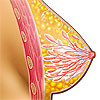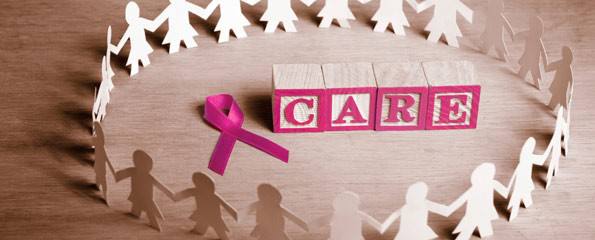Breast cancer: Do you know who diagnoses you?
Australian women have a 1 in 9 lifetime risk of developing breast cancer and 1 in every 100 breast cancers occurs in men. In 2012, it is estimated that *14,610 women will be diagnosed with breast cancer, making it the most common cancer affecting women in Australia. However, despite this, few people realise that pathologists arguably play the most important role in the detection and treatment of breast cancer.
Dr Jane Dahlstrom, an Anatomical Pathologist, spokesperson on breast cancer for the Royal College of Pathologists of Australasia (RCPA), and breast cancer survivor, explains that pathologists work to diagnose, direct treatment and gain a better understanding of breast cancer through research.
“The pathologist’s role in detecting breast cancer is not widely understood by patients as our job is to diagnose cancer by looking at samples under a microscope in laboratories. However, it’s fair to say that pathology is crucial in breast cancer. Our laboratory processes more than 30,000 referrals each year and more than 800 of those relate to breast disease. Fortunately these are not always cancer. As pathologists, it is our job to provide information which will determine the treatment that is required for the patient and, to some extent, the prognosis,” says Dr Dahlstrom.
Breast cancer pathology testing involves removing tissue from the breast by a surgeon (biopsy), to be studied by a pathologist. There are two main types of biopsies. The first is fine needle aspiration cytology, where a thin needle is used to draw cells out of a lump. The second, is a core or mammotome biopsy which is used usually when a lesion is detected on mammography. This allows the pathologist to look at individual cells and also the relationship of cells to each other. This test aids the process of deciding if a cancer is invasive or not.
“It is important for every woman and man to learn how to examine their breasts and go to their doctor for a regular breast examination. When facing daunting statistics on the likelihood of developing breast cancer, it’s important for women and men to stay positive and realistic. An 11% lifetime risk of women developing breast cancer also represents an 89% chance that you won’t develop it at all and luckily for us, most patients today survive breast cancer,” says Dr Dahlstrom.
The RCPA hopes to highlight the importance of pathology in medicine and, in particular, its role in detecting breast cancer. Pathology is the study of the nature and causes of diseases. It underpins every aspect of medicine, from monitoring of chronic diseases, to genetic research, to the diagnosis of every detected cancer in the world.
(Source: The Royal Collrge of Pathologists of Australasia)
More information
 | For more information on breast cancer, types of breast cancer and its investigations and treatments, as well as some useful videos, see Breast Cancer. |
Dates
Created by:

 Login
Login














